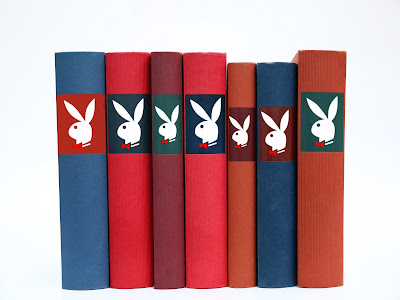My fellow white guys, we need to get over ourselves
I'm pretty sure this is the only time I'll ever quote Playboy magazine, so don't miss it.

The January 1985 issue included an essay by James Baldwin, "Here Be Dragons," in which he explored issues of sexuality and gender identity (decades before the current interest in non-binary identification) and related them to his own experiences. (If you want to check out the essay, please be aware that it contains pretty frank descriptions of adult situations. It was in Playboy, after all.) What struck me most was his assessment of what it means to be an American man:
"The American ideal, then, of sexuality appears to be rooted in the American ideal of masculinity. This ideal has created cowboys and Indians, good guys and bad guys, punks and studs, tough guys and softies, butch and faggot, black and white. It is an ideal so paralytically infantile that it is virtually forbidden -- as an unpatriotic act -- that the American boy evolve into the complexity of manhood."
This diagnosis pretty much explains the tantrum-throwing giant manbaby currently occupying the White House, as well as the tissue-paper tough guys who put him there.
This week, we learned that the American ideal has spread at least as far as Toronto, where a guy ran over a couple of dozen people with his van because women wouldn't sleep with him. We all got to discover the "incel" movement, the self-pitying "involuntarily celibate" men who think women owe them sex, and who get very angry when the women don't see things in quite the same way. Their hero is the guy who shot up Isla Vista a few years ago, someone who never felt the need to evolve into the complexity of manhood to be sure.
Here's something else you probably won't see me do again - agree with something a member of the alt-right says. A recent BBC Radio documentary, "What Men Think", talked to a number of men in North Carolina - all white - about the hardships they're facing in the world today, and then asked an alt-right organization's spokesman what he thought. "We see a lot of men nowadays who don't have a lot of purpose in life," he replied. "I think they haven't faced enough adversity. They lack a drive to go out and create things... I think that they're very coddled and spoiled."
Okay, maybe I don't interpret that statement in quite the way he does. When he says, "coddled and spoiled," I think "privileged." We've always had a society where white men had first dibs on the best of everything, where their word was law and no one was allowed to question it. Even when their economic conditions weren't the best, they still had the advantage over people of color and over women. But now that's changing. Society is changing, as people who aren't white men gain more rights and more equality. The economy is changing too, as businesses either ship jobs overseas or replace them with automation. Everyone is having to struggle. Everyone who's not a white man has always had to struggle, so it doesn't seem any different. But for white men, it's a shock that many can't handle.
The CDC reports that American life expectancy has dropped for two years in a row, primarily among white men. Studies attribute the decline to "substance abuse and despair." I don't mean to sound callous, but when I hear that, I can't help remembering this quote from Thomas Merton.

The man who is privileged, coddled and spoiled, and who never has to evolve into the complexity of manhood, is not prepared when his privileged, spoiled life gets upended. And more often than not, he chooses to wallow in self-pity rather than do something to change and adapt.
What's the answer? The alt-right thinks these men need something to dominate. Domination is natural for these men, they say. Let them enjoy some manly bonding over putting women back in their places or crushing the lesser races, and all will be well. That's how you get all those idiots marching around with tiki torches and Confederate flags.
I'd like to offer an alternative - the exact opposite to domination, in fact. Thomas Merton continues:
"Despair is the ultimate development of a pride so great and so stiff-necked that it selects the absolute misery of damnation rather than accept happiness from the hands of God and thereby acknowledge that God is above us and that we are not capable of fulfilling our destiny by ourselves.
But the man who is truly humble cannot despair, because in the humble man there is no longer any such thing as self-pity."
Richard Rohr, a Franciscan friar who is one of our present day successors to Merton, often cites a main principle of the Twelve Steps, that we must accept that we cannot save ourselves and rely on help from a higher power. I would point out that such help can easily come to us through someone white men might consider "inferior." For eight years, we had a President who tried his best to help Americans in need, and an awful lot of white people rejected that help because it was coming from a black man. In 2016, we had a woman who wanted to carry on with that help, and an awful lot of people said they'd rather give the job to a white man, even if that white man was the least qualified person they could find.
This country has a rocky road ahead, but I still believe we can get through it. In order to do that, though, we must get over ourselves. We must grow up and admit that we're not John Wayne, we're not the Avengers, we're not superheroes of any kind. We're just one part of the human race. We have our part to play, but other people have their parts too, and sometimes their parts will be more important than ours. Do we grow up and take our place alongside them? Or do we act like petulant children and take our pride to an early grave? That's the choice we have to make.

The January 1985 issue included an essay by James Baldwin, "Here Be Dragons," in which he explored issues of sexuality and gender identity (decades before the current interest in non-binary identification) and related them to his own experiences. (If you want to check out the essay, please be aware that it contains pretty frank descriptions of adult situations. It was in Playboy, after all.) What struck me most was his assessment of what it means to be an American man:
"The American ideal, then, of sexuality appears to be rooted in the American ideal of masculinity. This ideal has created cowboys and Indians, good guys and bad guys, punks and studs, tough guys and softies, butch and faggot, black and white. It is an ideal so paralytically infantile that it is virtually forbidden -- as an unpatriotic act -- that the American boy evolve into the complexity of manhood."
This diagnosis pretty much explains the tantrum-throwing giant manbaby currently occupying the White House, as well as the tissue-paper tough guys who put him there.
This week, we learned that the American ideal has spread at least as far as Toronto, where a guy ran over a couple of dozen people with his van because women wouldn't sleep with him. We all got to discover the "incel" movement, the self-pitying "involuntarily celibate" men who think women owe them sex, and who get very angry when the women don't see things in quite the same way. Their hero is the guy who shot up Isla Vista a few years ago, someone who never felt the need to evolve into the complexity of manhood to be sure.
Here's something else you probably won't see me do again - agree with something a member of the alt-right says. A recent BBC Radio documentary, "What Men Think", talked to a number of men in North Carolina - all white - about the hardships they're facing in the world today, and then asked an alt-right organization's spokesman what he thought. "We see a lot of men nowadays who don't have a lot of purpose in life," he replied. "I think they haven't faced enough adversity. They lack a drive to go out and create things... I think that they're very coddled and spoiled."
Okay, maybe I don't interpret that statement in quite the way he does. When he says, "coddled and spoiled," I think "privileged." We've always had a society where white men had first dibs on the best of everything, where their word was law and no one was allowed to question it. Even when their economic conditions weren't the best, they still had the advantage over people of color and over women. But now that's changing. Society is changing, as people who aren't white men gain more rights and more equality. The economy is changing too, as businesses either ship jobs overseas or replace them with automation. Everyone is having to struggle. Everyone who's not a white man has always had to struggle, so it doesn't seem any different. But for white men, it's a shock that many can't handle.
The CDC reports that American life expectancy has dropped for two years in a row, primarily among white men. Studies attribute the decline to "substance abuse and despair." I don't mean to sound callous, but when I hear that, I can't help remembering this quote from Thomas Merton.

The man who is privileged, coddled and spoiled, and who never has to evolve into the complexity of manhood, is not prepared when his privileged, spoiled life gets upended. And more often than not, he chooses to wallow in self-pity rather than do something to change and adapt.
What's the answer? The alt-right thinks these men need something to dominate. Domination is natural for these men, they say. Let them enjoy some manly bonding over putting women back in their places or crushing the lesser races, and all will be well. That's how you get all those idiots marching around with tiki torches and Confederate flags.
I'd like to offer an alternative - the exact opposite to domination, in fact. Thomas Merton continues:
"Despair is the ultimate development of a pride so great and so stiff-necked that it selects the absolute misery of damnation rather than accept happiness from the hands of God and thereby acknowledge that God is above us and that we are not capable of fulfilling our destiny by ourselves.
But the man who is truly humble cannot despair, because in the humble man there is no longer any such thing as self-pity."
Richard Rohr, a Franciscan friar who is one of our present day successors to Merton, often cites a main principle of the Twelve Steps, that we must accept that we cannot save ourselves and rely on help from a higher power. I would point out that such help can easily come to us through someone white men might consider "inferior." For eight years, we had a President who tried his best to help Americans in need, and an awful lot of white people rejected that help because it was coming from a black man. In 2016, we had a woman who wanted to carry on with that help, and an awful lot of people said they'd rather give the job to a white man, even if that white man was the least qualified person they could find.
This country has a rocky road ahead, but I still believe we can get through it. In order to do that, though, we must get over ourselves. We must grow up and admit that we're not John Wayne, we're not the Avengers, we're not superheroes of any kind. We're just one part of the human race. We have our part to play, but other people have their parts too, and sometimes their parts will be more important than ours. Do we grow up and take our place alongside them? Or do we act like petulant children and take our pride to an early grave? That's the choice we have to make.



Comments